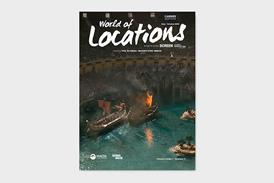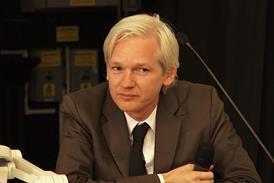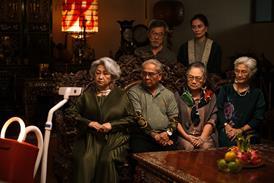
EXCLUSIVE: Festival accreditation body FIAPF (International Federation of Film Producers’ Association) has issued a public statement to reaffirm the artistic and operational independence of film festivals.
FIAPF, which accredits the world’s leading film festivals including Cannes, Berlin and Venice, issued the statement after becoming concerned about the increasing number of festivals facing ‘unprecedented pressure’, including threats of violence, over their selections.
The FIAPF statement also calls out attacks on film festival sponsors which it says undermines the financial independence of events.
Scroll down to read full statement
Films on contentious subjects such as the Ukraine-Russia war, the Israel-Hamas conflict and far-right politics have proved lightning rods for film festivals over the past two years.
Many festivals have faced coordinated campaigns on social media or attacks from politicians, while some have had to cancel screenings to protect festivalgoers, staff and film crews after receiving specific threats.
Havana Marking’s documentary Undercover: Exposing The Far Right, was pulled at the last minute by the 2024 BFI London Film Festival amid safety concerns. The Toronto International Film Festival paused screenings last year of documentary Russians At War because of threats to festival operations and public safety. The 2024 Berlin Film Festival found itself caught up in a political furore after the directors of documentary No Other Land and other prize-winners condemned Israel’s actions during its closing ceremony.
“What started as isolated cases of threats to the artistic and/or financial independence of festivals has recently become a recurring phenomenon,” says the statement.
FIAPF says it closely monitors the pressure exerted on festivals and their selection or operations, “whether it emanates from civil society, including activist groups, or even is amplified by policymakers.”
It says that pressure on festivals to cancel screenings are “tantamount to silencing creative voices, curators’ work, and dialogue opportunity.”
The statement goes on to deplore pressure on sponsors, who are targeted for reasons unrelated to the festivals themselves or their selections. “Vulnerable to political change and economic setbacks, festivals need to rely on private partners to supplement their sources of financing. Such pressures threaten the ability of festivals to deliver a rich and diversified cultural offering to local audiences.”
Key principles
The FIAPF statement goes on to reaffirm what it says are a “few key facts and principles to preserve festivals’ priceless contributions to films”:
• “The ability of festivals to proceed with their programming according to a strictly independent process, determined solely by their organising committee in compliance with the laws and/or regulations applicable in their respective territory, must be indisputable, protected by the public authorities and supported by any festival’s partners, including private sponsors.”
• “The ability of festivals to decide on their sponsorship strategy according to their financial needs is also indisputable. This independence of decision should be protected and supported by public authorities and festivals’ other partners.”
• “In an increasingly polarised world, film festivals must be able to continue to offer safe spaces for exchange and debate as the raison d’être of any diverse cultural event.”
FIAPF is responsible for accrediting international film festivals and its seal of approval is highly sought after. The FIAPF Accreditation Programme brings together 44 festivals from 27 countries on the five continents.
The organisation held a closed-door discussion on the subject with its members and select festivals at the Berlin Film Festival in February. Its statement sums up the principles agreed on during the discussion.
Benoit Ginisty, FIAPF managing director, said: “Our accreditation programme was created on the ground of artistic independence of film festivals and we have felt it was timely, if not urgent, to reaffirm this key principle at a time when we see new and multifaceted pressures on some films and festivals having selected them.”
In full - FIAPF Statement on the artistic and operational independence of film Festivals
In keeping with one of its fundamental vocations since its inception, cinema relentlessly tells the world as it is, through the subjective eyes of screenwriters and filmmakers.
Unlike journalism, cinema - whether fiction or documentary - reflects political, social and aesthetic influences of its time. This is why it can ignite reflections and debates while arousing curiosity and opening to otherness.
For decades, festivals have been films’ natural allies. They reveal and highlight the diversity of artistic perspectives, connect films with audiences, and create open minded spaces for dialogue around films.
However, for some time now, film festivals have been facing unprecedented pressure as a growing number of controversies are triggered around (some) selected films. This pressure on the decisions made by the programming teams, whose work complies with national laws and regulations in that field, can take the form of violent threats forcing festivals to postpone or even cancel screenings to protect festivalgoers but also festivals and films crews. Such situations are tantamount to silencing creative voices, curators’ work, and dialogue opportunity.
In addition to multifaceted threats on their artistic independence, festivals have also to face attacks on their financial independence when some of their sponsors are targeted for reasons unrelated to the festivals themselves or their selection. As they are mostly non-profit organisations, festivals are fragile economic ecosystems, whose financial sustainability is reassessed every year. Vulnerable to political change and economic setbacks, festivals need to rely on private partners to supplement their sources of financing. Such pressures threaten the ability of festivals to deliver a rich and diversified cultural oIering to local audiences.
What started out as isolated cases of threats to the artistic and/or financial independence of festivals has recently become a recurring phenomenon. FIAPF closely monitors the pressure exerted on festivals and their selection or operations, whether it emanates from civil society, including activist groups, or even is amplified by policy makers.
As the operator of the accreditation programme for international film festivals and representative of the film producers’ community worldwide, FIAPF wishes to reaffirm a few key facts and principles to preserve festivals’ priceless contribution to films:
• The ability of festivals to proceed with their programming according to a strictly independent process, determined solely by their organizing committee in compliance with the laws and/or regulations applicable in their respective territory, must be indisputable, protected by the public authorities and supported by any festival’s partners, including private sponsors.
• The ability of festivals to decide on their sponsorship strategy according to their financial needs is also indisputable. This independence of decision should be protected and supported by public authorities and festivals’ other partners
• In an increasingly polarized world, film festivals must be able to continue to oIer safe spaces for exchange and debate as the raison d’être of any diverse cultural events
Silencing films selected in festivals means ignoring the collective work done by producer(s), director(s), screenwriter(s), performers, technicians and partners in distribution. Threatening festivals’ financial viability means disregarding committed people who relentlessly fight for culture and plurality of viewpoints. The film producers’ community worldwide represented by FIAPF firmly stands for defending festivals’ artistic and operational independence.
























No comments yet